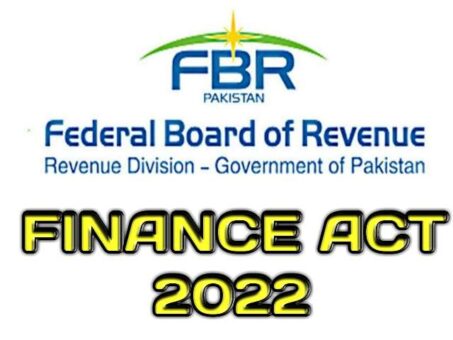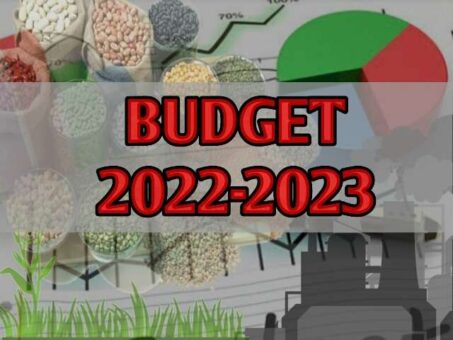The Federal Board of Revenue (FBR) has recently issued an updated definition of a company under the Sales Tax Act, 1990, effective from July 1, 2023.
(more…)Tag: Sales Tax Act 1990
-

Understanding Definition of Active Taxpayer Under Sales Tax Act, 1990
In an effort to streamline tax administration and promote compliance, the Federal Board of Revenue (FBR) has recently released an updated definition of an active taxpayer under the Sales Tax Act, 1990.
(more…) -

FBR Introduces Penalty for Non-Filing of Sales Tax Return, Imposes Stricter Guidelines
Karachi, July 9, 2023 – The Federal Board of Revenue (FBR) has taken a decisive step towards ensuring compliance with sales tax regulations by prescribing penalties for individuals and entities failing to furnish their monthly sales tax return.
(more…) -

FBR updates Sales Tax Act incorporating new rates of 18% and 25%
ISLAMABAD: Federal Board of Revenue (FBR) on Tuesday issued updated Sales Tax Act, 1990 incorporating new sales tax rates of 18 per cent and 25 per cent.
(more…) -

Pakistan amends laws to tax retailers
ISLAMABAD: Pakistan on Monday revised laws to impose tax on retailers after suspending fixed tax scheme. President Arif Alvi has signed the bill namely Tax Laws (Second Amendment) Ordinance, 2022 to promulgate the revised taxation on the retailers.
Through the immediate ordinance, amendments have been made to Sales Tax Act, 1990 under which retailers are required to pay sales tax through electricity bill.
READ MORE: FBR allows tax refund deducted through electricity bills
The retailers/shopkeepers are now required to pay 5 per cent of the electricity bill is amounting up to Rs20,000.
The rate of tax is not applicable on the Tier-1 retailers as a separate mechanism for charging sales tax is in vogue.
The sales tax rate shall be 7.5 per cent in case the electricity bill is above Rs20,000.
The amendments have been applicable from July 01, 2022. This means the retailers have to pay the tax on their electricity bill issued for the month of July 2022.
A commissioner of Inland Revenue, Federal Board of Revenue (FBR) has been authorized to issue order to the electricity supplier regarding exclusion of a person who is either a Tier-1 retailer or not a retailer.
READ MORE: Pakistan decides to roll back fixed tax scheme
According to the latest ordinance, notwithstanding anything contained in this Act, the Federal Government may, in lieu of or in addition to the tax under sub-section (9), by notification in the official Gazette, levy and collect such amount of tax at such rates and from such date as it may deem fit, from retailers, other than those falling in Tier-1, through their monthly electricity bill, and may also specify the mode, manner or time of payment of such tax:
Provided that different rates or amounts of tax may be specified for different persons or class of persons.
The ordinance also amended Income Tax Ordinance, 2001 and introduced special provision relating to payment of tax through electricity connections.
READ MORE: FTO investigates tax collection through electricity bills
It said that notwithstanding anything contained in the Ordinance, a tax shall be charged and collected from retailers other than Tier-I retailers as defined in the Sales Tax Act, 1990 (VII of 1990) and specified service providers on commercial electricity connections at the rates specified in the income tax general order issued in terms of sub-section (2).
Sub-Section (2): For the purposes of this section, the Federal Government or the Board with the approval of the Minister in-charge pursuant to the approval of the Economic Coordination Committee of the Cabinet may, issue an income tax general order to-
(a) provide the scope, time, payment, recovery, penalty, default surcharge, adjustment or refund of tax payable under this section in such manner and with such conditions as may be specified;
(b) provide the collection of tax on the amount of bill or on any basis of consumption, in addition to or in lieu of advance tax collectible under sub-section (1) of section 235, at such rates or amounts, from such date and with such conditions as may be specified;
READ MORE: Withdrawal of sales tax through electricity bills demanded
(c) provide record keeping, filing of return, statement and assessment in such manner and with such conditions as may be specified;
(d) provide mechanism of collection, deduction and payment of tax in respect of any person;
(e) include or exempt any person or classes of persons, any income or classes of income from the application of this section, in such manner and with such conditions as may be specified; and
(f) provide that tax collected under this section shall in respect of such persons or classes of persons be adjustable, final or minimum, in respect of any income to such extent and with such conditions as may be specified.
The provisions of sub-section (1) of section 235 shall apply to the persons as specified therein unless specifically exempted under the income tax general order issued under sub-section (2).
The provisions of section 100BA and rule 1 of the Tenth Schedule shall not apply to the tax collectible under this section unless specifically provided in respect of the person or class of persons mentioned in the income tax general order issued under sub-section (2).”
-

Pakistan implements new amendments to tax laws
In a move aimed at enhancing revenue generation during the current fiscal year, Pakistan has implemented new amendments to both direct and indirect tax laws.
(more…) -

Significant changes to sales tax laws through Finance Act 2022
KARACHI: Significant changes have been made to sales tax laws through Finance Act, 2022 and that are applicable from July 01, 2022.
PwC A.F. Ferguson & Co interpreted the changes made to Sales Tax Act, 1990 through the Finance Act, 2022, which are as follow:
READ MORE: Key changes to income tax laws through Finance Act 2022
1. The requirement of CNIC / NTN for the purposes of invoices issued to unregistered persons and restriction of input tax attributed to such supplies retained to the extent of supplies to unregistered distributors.
2. Sales tax regime of pharma sector revamped with 1 per cent final sales tax on manufacturers and importers without any input adjustment.
3. The rate of fixed tax on other than Tier-1 retailers shall be increased by 100 per cent if the said retailers are not appearing on the Active Taxpayer List.
4. Fertilizers exempted from sales tax.
READ MORE: Non-ATL retailers to pay double amount of fixed tax
5. Value of supply not to include the amount of subsidy provided by the Federal Government or Provincial Government to the electricity consumer.
6. Through the Bill, ‘locally produced coal’ was proposed to be taxed at 17 per cent which has not been approved in the Act. It has now been subject to sales tax at higher of 17 per cent ad valorem or Rs 700 per metric tonne.
7. The proposed increase in sales tax rate from 5 per cent to 10 per cent for following has not been approved in the Act.
READ MORE: Tampering PSW data to attract 4-year jail sentence
— natural gas
— Phosphoric acid
8. Electric vehicle in CBU condition of 50 kwh battery or below is now subject to sales tax at 12.5 per cent.
9. Electric vehicle transport buses of 25 seats or more in CBU condition are now subject to sales tax at 1 per cent.
10. Changes proposed in the rate of sales tax on different categories of mobile / satellite phones have not been approved in the Act.
11. Online marketplace is now required to withhold sales tax at 1 per cent (instead of 2 per cent).
READ MORE: NA approves levy on petroleum products up to Rs50/liter
-

Budget 2022/2023: Salient features of sales tax
ISLAMABAD: Following are the salient features of amendment made to Sales Tax Act, 1990 through Finance Bill, 2022.
The proposed budgetary measures pertaining to Sales Tax for FY 2022-23 are:
RELIEF MEASURES:
1. The condition of CNIC/NTN in case of supply to unregistered persons have been removed.
READ MORE: Budget 2022/2023: Salient features of income tax
2. Sales Tax exemption has been granted on import and supply of all types of seeds.
3. Sales Tax on Tractor is withdrawn.
4. Exemption has been granted on imports by UN diplomats/diplomatic missions and privileged persons.
5. Import and supply of solar panels (PV module) has been exempted from sales tax.
6. Goods imported by or donated to non-profit charitable hospitals have been exempted. Furthermore, goods supplied to charitable hospitals of fifty beds or more have also been exempted from sales tax.
7. Temporary imports have been exempted from the levy of the sales tax.
READ MORE: Pakistan allocates Rs800 billion for FY23 PSDP
8. Made up jewellery has been made chargeable to 3 per cent fix tax on local supply and 4 per cent fix tax on imports.
9. Plant and machinery imported by power generation projects that entered into implementation agreement with GoP has been exempted from sales tax.
10. Rs.90 per kg is reduced to Rs.60 per kg on potassium chlorate.
11. Import by EPZ has been exempted from sales tax.
READ MORE: Federal government presents budget 2022-2023
REVENUE MEASURES:
12. The scope of further tax has been enhanced to include non-active taxpayers as well.
13. Regime of other then Tier-1 retailers has been streamlined.
14. VAT has been imposed on compressor scrap, motor scrap and copper cutting scrap even when imported by manufacturers.
-

Fee and service charges under Sales Tax Act
Section 76 of the Sales Tax Act, 1990, sheds light on the imposition and regulation of fee and service charges by the Federal Board of Revenue (FBR).
(more…) -

Application of the provisions of Act IV
Section 75 of the Sales Tax Act, 1990, provides a mechanism for the application of certain provisions of Act IV of the Customs Act, 1969, in relation to the imposition and exemption from customs duties, draw-back of duty, warehousing, confiscation, and procedural aspects concerning offenses and appeals.
(more…)